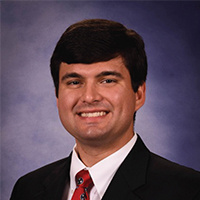Doyle Estate Lawyer, Tennessee
Matthew Janson McClanahan
✓ VERIFIEDAccident & Injury, Estate Planning, Litigation, Business, Criminal
Matthew is a proud native-born Tennessean and the third generation to live on my family’s farm. His roots trace back to his ancestor and the first g... (more)
David Owen Day
Mass Torts, Government Agencies, Wills & Probate, Bad Faith Insurance, Banking & Finance
Status: In Good Standing
Brandon Scott Griffin
Estate Planning, Family Law, Elder Law, Administrative Law
Status: In Good Standing Licensed: 12 Years
Denny Mitchell
Credit & Debt, Federal Appellate Practice, Trusts
Status: In Good Standing Licensed: 54 Years
William Mitchell
Federal Appellate Practice, Government, Trusts, Credit & Debt
Status: In Good Standing Licensed: 76 Years
Gary W Dodson
Federal Appellate Practice, Estate Planning, Family Law, Elder Law
Status: In Good Standing Licensed: 50 Years
Gary Dodson
Federal Appellate Practice, Estate Planning, Family Law, Elder Law
Status: In Good Standing Licensed: 50 Years
George Allen Burke
Reorganization, Wills & Probate, Business, Federal Appellate Practice
Status: In Good Standing Licensed: 51 Years
George Burke
Reorganization, Wills & Probate, Business, Federal Appellate Practice
Status: In Good Standing Licensed: 51 Years
Susan N. Marttala
Municipal, Wills & Probate, Employment Discrimination, Medical Malpractice
Status: In Good Standing


